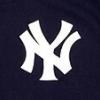-
Posts
27117 -
Joined
-
Days Won
82
Content Type
Profiles
Forums
Downloads
Everything posted by Yankee4Life
-
7 out of 10, 64 seconds. I should be thankful I got this many correct. Here are the final standings for April. It was another close one!
-
You had your mind on other things. 😀
-

Conversion Mod MLB 2K25 part.1.rar
Yankee4Life commented on chamakocastillo's file in Total Conversion Mods
-
9 out of 10, 123 seconds. Slow time today because I just could not get going. Jim, I should have come in here first before I played because I got the exact same question and like you I missed it. Joe Niekro did go to the World Series with the Twins in 1987. I don't get it either.
-

How to convert a 2k12 uniform in the 2k11 game
Yankee4Life replied to no ball four's topic in Support
1. Search the 2K12 and 2K11 support forums for a possible answer. 2. Check the 2K11 uniforms to see if one has already been made for Cleveland. -
7 out of 10, 94 seconds. Tomorrow's going to be interesting.
-
5 out of 10, 68 seconds. I blew it today. But these questions were really tough.
-
10 out of 10, 38 seconds. Three in a row. Wow. The ghost of George Steinbrenner chewed me out last week and told me to get going or else I'd be fired. So, I got going and right now he's happy.
-
10 out of 10, 46 seconds. I paced myself today with these questions and the result was I did not get tripped up on the tricky ones.
-
10 out of 10, 29 seconds. I am more shocked than anyone after posting that time because I have not been under thirty seconds in a long time.
-
7 out of 10, 83 seconds. I may have grabbed seven but I don't know how.
-
7 out of 10, 68 seconds. It is a miracle I got this many correct.
-
7 out of 10, 79 seconds. The miracle is that I got seven.
-
9 out of 10, 45 seconds. I had no idea how many teams Rickey Henderson played for. That's the question I missed.
-
Thank you for this Muller and good detective work BallFour. After all this time I still wonder why we were only given Alex Rodriguez's name and the others were kept quiet. Look how many Red Sox names were on that list. Someone was protecting those people. 😡
-
10 out of 10, 44 seconds. No way I'm winning today with a time like that. The only way is if no one else plays.
-
9 out of 10, 48 seconds. Well the one that I missed was hit-and-miss and as soon as I saw the right answer I knew that I should've had it right.
-
I took my quiz early this morning and I thought that thirty seconds could win this for today. Not a chance! Laroquece that is our best time ever since we have been playing this. Wonderful job!
-

Running MVP 2005 doesn't work in Virtualized Windows XP environment
Yankee4Life replied to DougFromLI's topic in Support
Fuzzone's MVP Studio is one.- 19 replies
-
- virtualbox
- cd
-
(and 1 more)
Tagged with:
-
10 out of 10, 30 seconds. Good Friday indeed! And if I did not have a slight hesitation I would have been under thirty seconds. Still, no reason to hang my head.
-

Running MVP 2005 doesn't work in Virtualized Windows XP environment
Yankee4Life replied to DougFromLI's topic in Support
Oh thank goodness I have a XP laptop that does not connect to the Internet. This way I don't have to mess with what goes on here. 👍- 19 replies
-
- virtualbox
- cd
-
(and 1 more)
Tagged with:
-
8 out of 10, 56 seconds. Thank God for two baseball questions.
-
8 out of 10, 58 seconds. I could have sworn I was faster than this but it's fine.
-
7 out of 10, 62 seconds. Getting this many right with terrible questions like I had was quite an accomplishment.
-
6 out of 10, 66 seconds. Woah, these were tough. Moving on..





